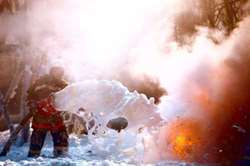
Fire Suppression Foams and Alternatives
Firefighting foam is the most commonly used method to suppress fires after extinguishing with water. As part of the current project, a literature survey was conducted on the various types of firefighting foams and its substitutes.
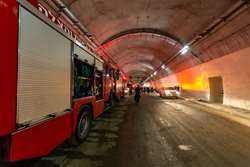
Underground Infrastructures: Technologies and Means Survey
As part of the project, a survey of the capabilities and means used in a case of fire emergency in underground structures will be conducted. By reviewing the open sources information, a comparison with various countries will be made in the field of existing standards and measures and future technologies.
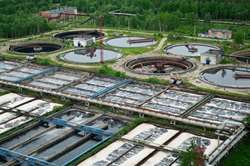
The Water Forum
The "Water Forum", established in 2009 by the Samuel Neaman Institute in cooperation with Israel Water Authority and the Grand Water Research Institute at the Technion, serves as a platform for discussing and analyzing key issues in order to contribute to the formulation of white papers on a variety of topics in the field of water related strategy and policy.
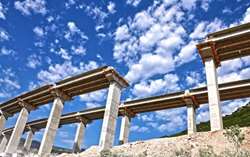
Israel's Policy on Developing Transport Infrastructure
This research focuses on preparing a policy document on the subject of a transport master plan for the National Council for Economy at the Prime Minister's Office. The objective of the study was to assist in the development of a policy to be determined by the Government on the subject of road and rail transport development in Israel.

National Infrastructure in Israel for the Year 2048
This is an ongoing project that deals with long-term planning on developing national infrastructures. Planning long-term infrastructure is of great importance for Israel for at least three reasons: the limited physical dimensions of the country; the continued relatively rapid demographic growth; and the long time required for planning and execution of infrastructure projects. Among the main goals of the research is to keep options open in the long-term, remove barriers that would prevent the construction of strategic facilities and networks, and a coordinated and optimized use of the limited areas of the country.

Israel 2028: Vision and Strategy for Israel
Continuing the efforts to actually implement the program "Israel 2028 – Socio Economic Vision and Strategy in Global World", the Samuel Neaman Institute initiated several projects designated to prepare a multi-annual implementation programs, in collaboration with government agencies.
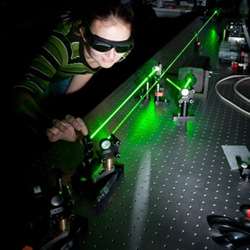
Mapping National Research Infrastructures
The purpose of the research is the mapping of the existing national research infrastructures and the definition of the needs of Israeli researchers with respect to the upgrade and establishment of new research infrastructures.
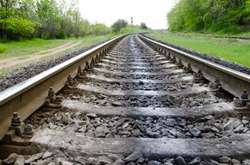
Stratigic Development of National Infrastructure
This project deals with the design of a long term strategy for development of physical infrastructure in the State of Israel. The project is based on the findings of the National Infrastructure in Israel - 2028 study, but with an expanded, longer-term perspective.
_20170427153244.537.jpg?w=250&quality=60)
Reclaiming the Dead Sea: Alternatives for Action
The aim of this project was to evaluate and present different alternatives for rehabilitating the Dead Sea and the Jordan River. In the process, three main alternatives were examined: "business as usual", introducing sea water into the Dead Sea (from the Mediterranean or from the Red Sea), and water supply from the Jordan River.

National Infrastructure in Israel - 2028
This national strategic plan integrates economic and social factors designed to meet the following mission statement: The State of Israel will be among the world's ten to fifteen leading countries in terms of income per capita; it will strive for the good of all its citizens, their quality of life and the future of its young generation.

"Israel 2020" to "Israel 2050"
The "Israel 2020" plan was profoundly affected by current planning practices. All of "Israel 2020"'s principles have been implemented in the National Outline Plan for Building, Development and Preservation, NOP no.35, that was approved by the Israeli National High Committee for Planning and Building and by the Israeli Government.

Mapping National Research Infrastructures in Israel
The Samuel Neaman Institute is conducting in 2012-2014 a further study on the subject of ‘Mapping National Research Infrastructures in Israel’. The goal of the study is to build the knowledge database that would allow the creation of a road map for planning national research infrastructures in Israel and to formulate a policy that will define budgets and priorities within a national policy on large research infrastructures in Israel.
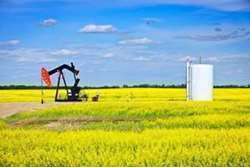
Challenges for Water Usage in Global Industry
This research project began in 2011 in cooperation with Newtech and the Israel Export Institute and was designed to increase the competitiveness of the Israeli water industry in the world. The project aims to map industrial sectors that use large amounts of water, requiring innovative technological developments to reduce water consumption per unit of product, to allow the release of emitted water while preserving the environment, and to highlight the solutions to opportunities and needs that will enable businesses to grow and become more robust.
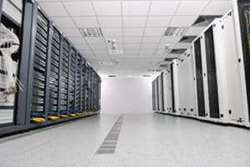
Information centers of MAGNET Consortia
A computerized information center, one of the largest in Israel, operates at the Samuel Neaman Institute. The center was established to fulfill the needs of knowledge management and to supply information science services to consortia that operate within the MAGNET program, and is part of the MAGNET program of the Ministry of Economy.

Energy Forum
The purpose of the Energy Forum meetings is to provide a professional platform where professional can discuss specific energy related topics. At the same time, the Forum allows multilateral discussions encouraging projects in the fields of renewable and energy conservation. The forum meetings serve as a platform for defining professional, applicable positions, to be used by relevant decision makers.
_20190307170301.445.jpg?w=250&quality=60)
RISIS (FP7 Project)
Work Package 9 (WP9) is part of the RISIS (Research Infrastructure for Research and Innovation Policy Studies) Project. SNI researchers are responsible for coordination between the different participants in WP9. The aim of WP9 is to develop a geographic clustering method that delineates concentrations of spatial activity regarding science, technology, and innovation.